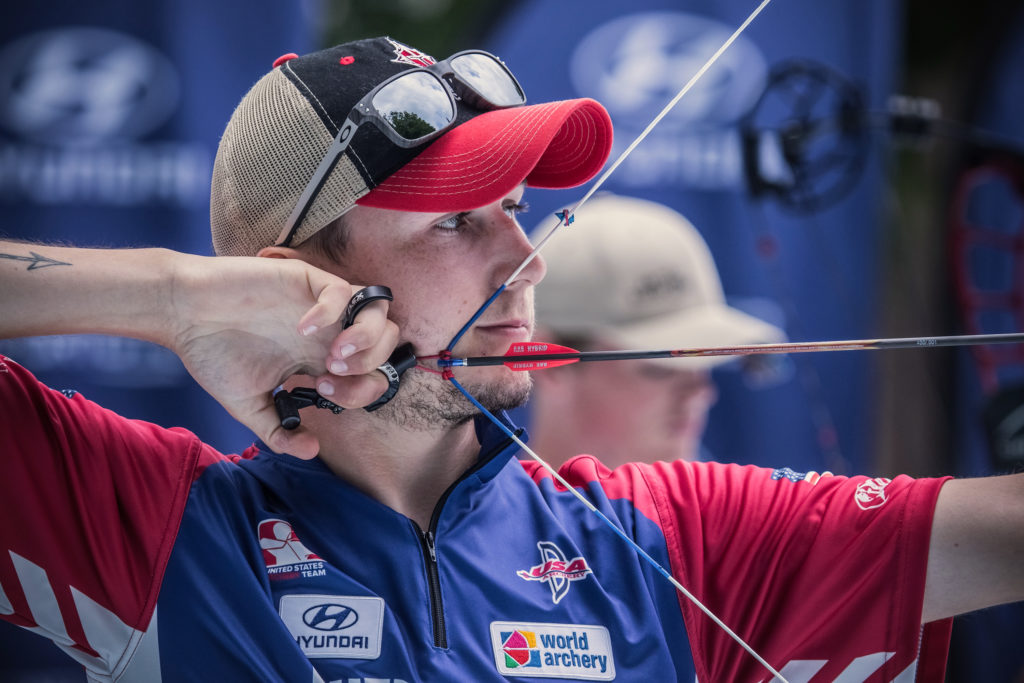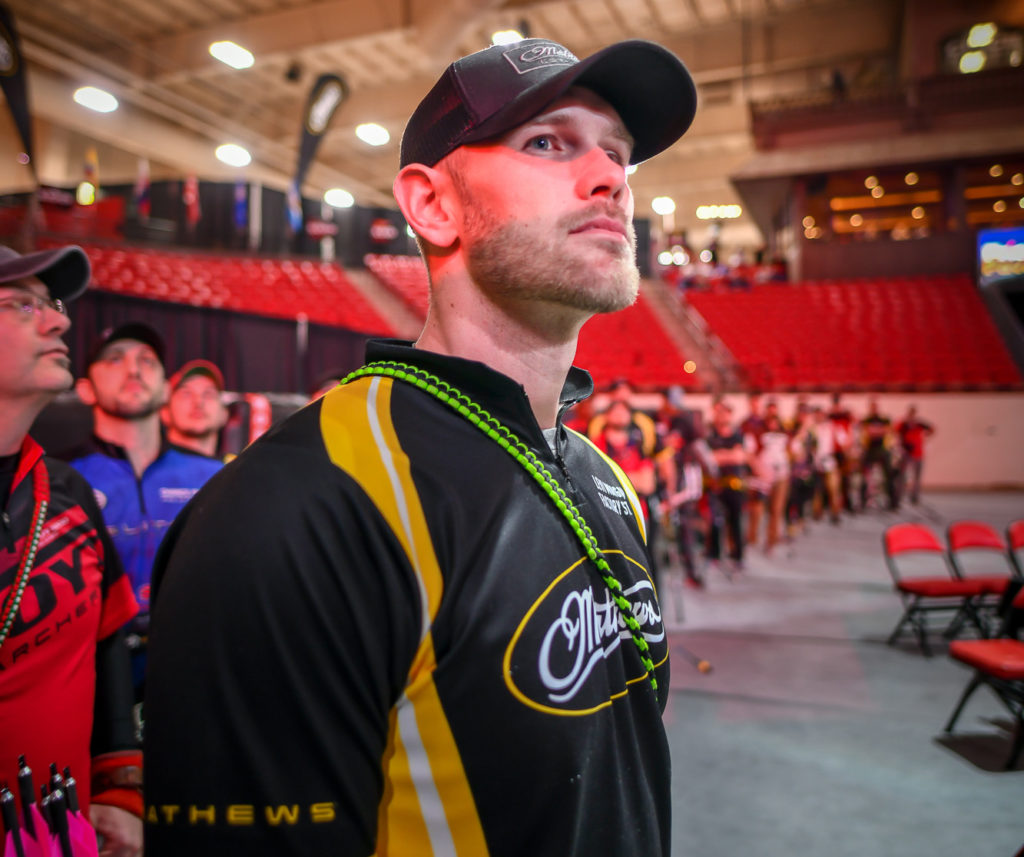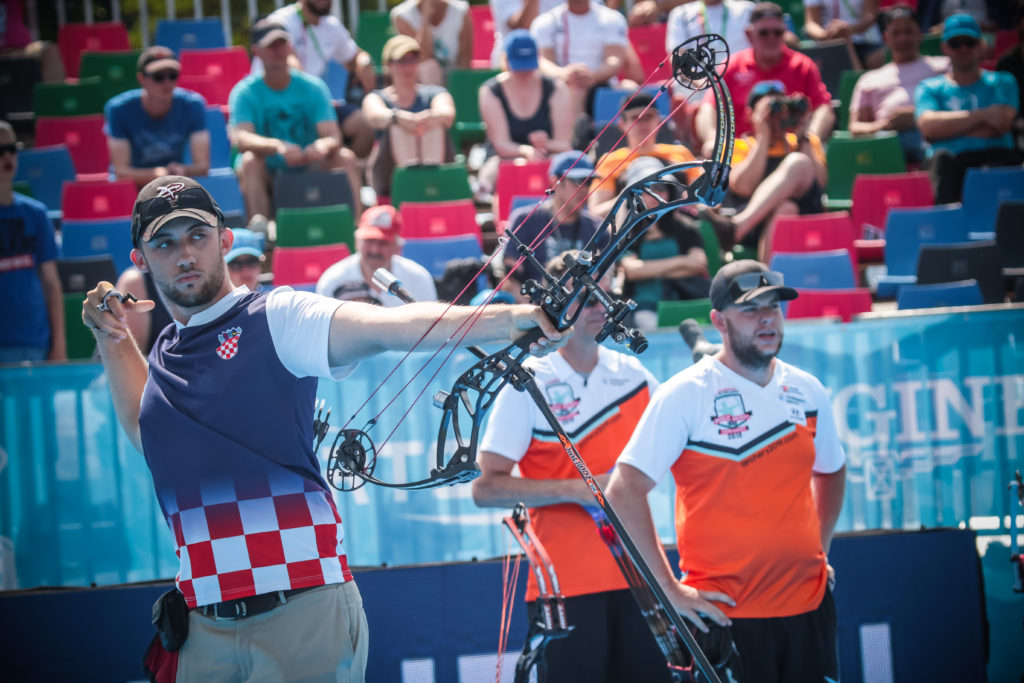
Could you do it? Duncan Busby investigates.
Turning professional is the dream of many archers; being able to do what you love day in and day out whilst earning a good living seems like the perfect job.
Historically archery has not been seen as a professional sport; but more and more archers are now able to earn a good living from tournament successes. Recurve archers have things a little different, but for compound archers, the bulk of professional earnings usually comes in one way or another from North America, where the major manufacturers are based and most of the big money tournaments take place.
Prize money, sponsorship deals and TV and advertising appearances can generate earnings – in a handful of instances – of over one million dollars. Most earnings are a lot more modest, and many of the people at the top might earn money from a variety of sources in the archery industry. But how do you make that leap from amateur hobbyist to full time archer?
Bow spoke to two young compound professionals who have chosen to make a career out of the sport. James Lutz is 21 years old and from the USA. After his spectacular victory this year in Den Bosch, he is the current World Champion and won gold at this year’s World Cup Stage 3 in Antalya with a perfect 150 point final.
He’s attended only two senior international tournaments; giving him a 100% success rate, an incredible achievement for an archer who was almost unknown outside of the USA only a month before.
But even someone with Lutz’s record does not yet consider himself a full-time pro, more “in between a pro and an amateur,” namely because he does not receive all his income from archery. This is not unusual though. “I feel like most of the pros are working people, who must compete in their spare time.” he said.

Fully turning pro would be a dream for him but it is difficult to achieve: “Not many people do shoot just full time and the people that do are the ones at the top, it’s hard, you see people try it and not be able to do it. A lot of your pay is based on your performance and the added pressure of that being your main income can be pretty big and hard on people.”
Domagoj Buden, from Croatia, is also 21 years old. He is already a seasoned professional archer who has attended a total of six world championships, four indoor championships, 14 outdoor world cups, 12 indoor world cups and a host of other professional tournaments.
He won bronze at both the World Games and at the World Field Championships and has a total of 13 international medals to his name. It’s an amazing achievement in so young an athlete, but perhaps not surprising in one whose international career began with a hat trick of gold, silver and bronze medals at the World Archery Youth Championships.
So what made Dom choose to take such an uncharted career path? “I love the sport, I love the travel and there was a good opportunity for me; it was just a good time and the right decision”.
Dom has managed to achieve what few archers do; an income made solely from archery. It must have been a worry then to take such a big leap? “I come from a very small country and we don’t get much money for doing archery professionally.
It depends on contingency and what events I win; it’s quite a lot of stress at the tournaments. Coming home without winning anything is really quite stressful.”
That he seems to have managed it well, really hides the fact that it wasn’t an easy feat. “It was quite difficult and took a lot of years of work, because of the social media preparation and getting everything to the level that sponsors saw me as someone they want to put money into. So it honestly wasn’t the easiest thing.”
Not all archers posting great results are able to make the leap, and not all understand exactly what it entails. Despite his tournament success, Dom doesn’t believe that you need to be the best to be successful in archery.
“In my opinion it depends more on how much product you are able to sell than what you score at a shoot because there are many guys out there who are shooting amazing, better than me, yet they’re not doing anything about selling the product so no one wants to sponsor them.”
Ultimately it will be a sponsor’s financial support that will allow you to compete full time. Whether you are representing your country, your bow company or any other manufacturer: travelling many thousands of miles a year costs a lot of money. Becoming a marketable product is far more profitable to any backer than simply what score you shoot.
So what advice does Dom have to anyone considering making archery their full time occupation? “Continue working hard, make sure you go to tournaments; I would recommend a lot of US tournaments because that’s where the real money is. World Archery is great you get a lot of exposure on TV and magazines, but the real money is in the USA.”
When archery is no longer your hobby but your job, you need to make smart business decisions, especially about which tournaments you attend.

Dom singles out 3D archery as a particularly profitable area to compete in, and identifies Levi Morgan as a perfect example of an archer who has combined his skill as a shooter with the commercial success of his TV show.
3D archery is big in America, and as the USA is the home of compound archery this discipline attracts the most money from sponsors. (Many target archers also earn money in the hunting side of the industry.) But like any business venture, investing is a big commitment and requires a certain amount of faith.
And what does the future hold for one of archery’s brightest stars? “I’ve signed for another three years with PSE so I’m really happy about that, after that we’ll just see what the future brings.”
Bow International certainly predicts great things for this young pro. But how do you follow in his footsteps?
Ultimately you need to work hard, believe in yourself and always be open to opportunities that come your way – even if that doesn’t always involve shooting a bow.
As James Lutz says: “I know it’s hard but the more I keep shooting and if I keep winning, maybe that can happen.”
How to become a professional compound archer

It goes without saying that some amount of shooting talent is essential to success; like any professional sport, pro archery is performance based so you must be able to win high level tournaments. Nothing can change this fact. But getting there requires paying attention to more than just shooting.
- Be prepared to make a big financial investment – you will have to fund all your own tournament entries and travel before sponsors will recognise you as a worthwhile investment. Be prepared to spend thousands before you get anything back.
- Be dedicated to the sport; be prepared to spend all your spare time practising and competing. Most professional archers spend several hours every day shooting, when you are holding down a day job and trying to fit in family time this can be especially difficult, but the best manage it.
- Be prepared to invest in a professional coach – training well and improving your skills as an archer is a worthwhile outlay. Club coaches are not always the most knowledgeable about compound archery, so finding someone who can teach you effective compound technique and equipment set-up will stand you in good stead against other pros.
- Find out what it will take to compete on your national team. Competing at large and sometimes exclusive international and professional tournaments allows you exposure to potential sponsors you wouldn’t ordinarily have. These tournaments will also give you access to fairly sizeable prize funds.
- Be prepared to spend large amounts of time away from home – the professional tournament circuit never stops, as a result some of the biggest and most successful archers can spend almost half their year in hotel rooms.
- Don’t expect free equipment or money from sponsors just because you can shoot high scores – sponsorship is a two way street; you must be a good brand ambassador as well as a successful shooter. It requires a leap of faith for companies to invest in you and they must be sure that you will generate enough product sales to justify their investment. Develop a social media profile and learn how to network – to be a good brand ambassador you need to be able to promote, advertise and sell the products you’re using.
- Be prepared to earn outside of competition – working in a pro-shop setting up bows and building arrows is a great way to improve your knowledge of archery equipment and will help you when working on your own kit. If you happen to have the right skills then working for a manufacturer as a designer, a machinist or a marketing expert allows you to play a key role in getting the latest piece of equipment into the shops.
- Working for your national governing body may not seem an obvious choice but many do offer paid positions doing a variety of jobs; it may not be shooting or working with equipment but it still involves working in archery and can be a pathway to something bigger.
Read Bow’s investigation into Turning Pro for recurves here.


I would love to join